With the promulgation of Decree No. 219/2025/ND-CP, effective August 7, 2025 (“Decree 219”), Vietnam introduces substantial updates to its foreign labour regulations. This pivotal Decree replaces previous regulations (Decree No. 152/2020/ND-CP and Decree No. 70/2023/ND-CP), aiming to significantly simplify administrative procedures, align with national digital transformation, and enhance Vietnam’s appeal for high-quality foreign talent.
For those who have been following our insights on the draft version of this Decree 219, we are pleased to provide a comparison highlighting the key changes now in effect. This update is essential for all enterprises employing foreign professionals in Vietnam.
The notable changes brought by Decree 219 include:
1) Simplified Work Permit (WP) application process: The previous separate steps for job posting, foreign labour demand report (FLDR), and WP application are now integrated into a single, faster process. This cuts down the total processing time from roughly 5 weeks to about 3 weeks.
2) Expanded WP exemption for short-term visits: The strict “3 times per year” entry limit for short-term work (under 30 days at a time) has been removed. Foreign employees are now exempt if their total working duration in Vietnam is less than 90 days in a calendar year, providing much greater flexibility.
3) Relaxed experience requirements: The minimum work experience required for both experts and technicians has been reduced. Notably, experts in priority sectors (e.g., tech, innovation, national digital transformation, and other priority sectors for socio-economic development) now only need 1 year of relevant experience, down from 3 years.
4) Decentralized processing authority: The primary authority for issuing work permits and exemption certificates has been shifted from the Ministry of Home Affairs (MOHA) and Department of Home Affairs (DOHA) to Provincial People’s Committees (PCs). Provincial PCs also gain the flexibility to delegate this authority further.
5) Removal of periodic reporting obligation: Employers are no longer required to submit semi-annual and annual reports on foreign labor usage, reducing a significant administrative burden.
6) Enhanced digitalization: Decree 219 supports online submissions and electronic transactions for WP and WP exemption certificate (WPEC) applications, aligning with digital transformation goals.
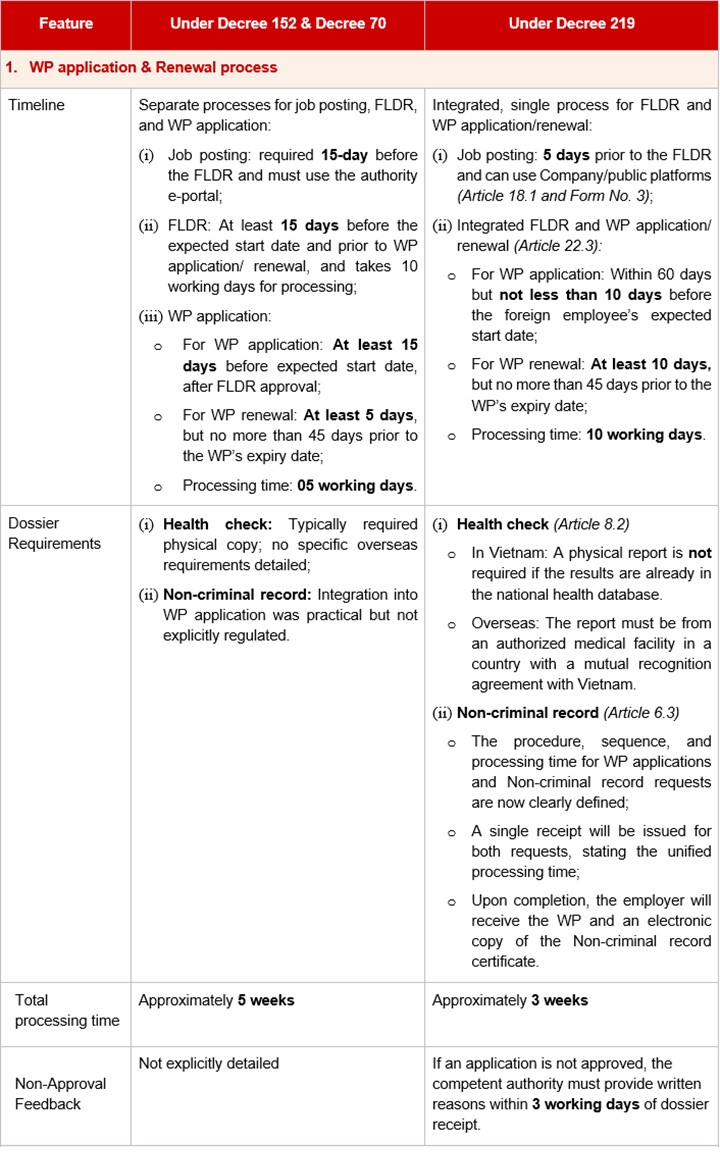
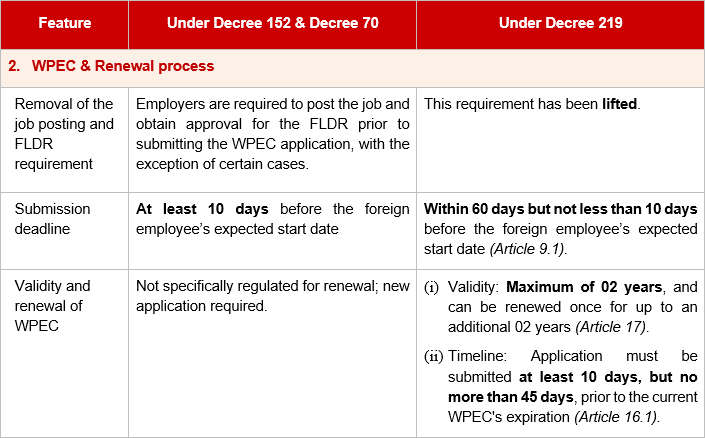
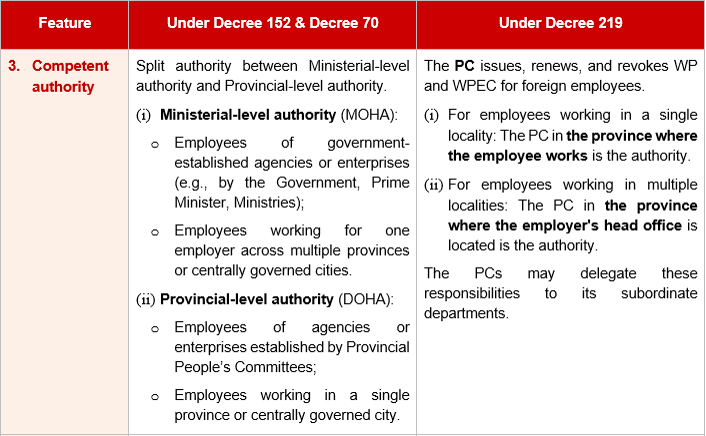
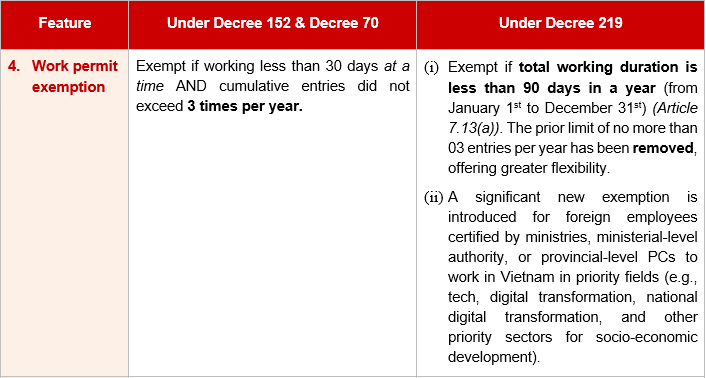
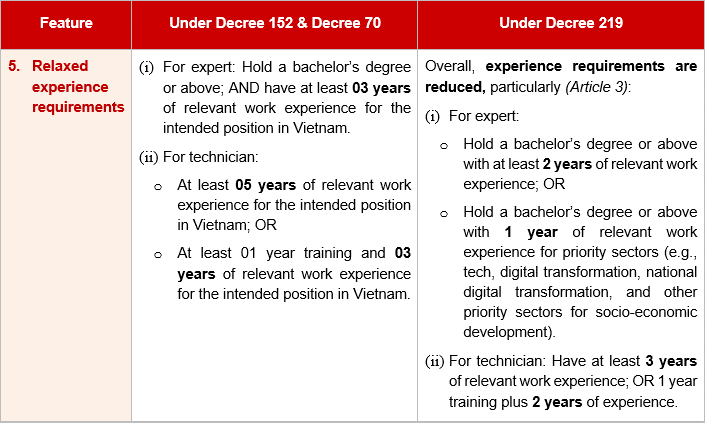
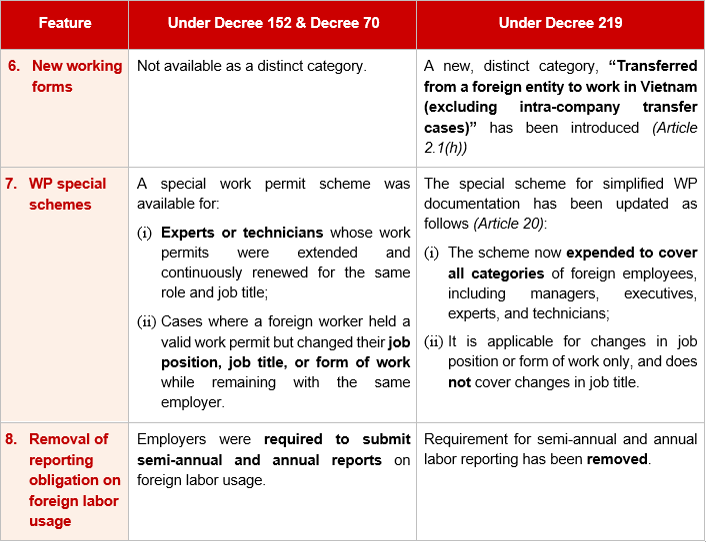
Decree 219/2025/ND-CP signifies a proactive effort by the Vietnamese Government to modernize and simplify foreign labor regulations. These amendments aim to reduce administrative burdens, improve transparency, and strategically attract essential human resources to support Vietnam’s economic development and innovation goals. The shift towards digitalization, simplified procedures, and expanded exemptions reflects a more business-friendly approach.
We strongly recommend that businesses and foreign workers promptly familiarize themselves with these new regulations to ensure full compliance and capitalize on the improved efficiency and expanded opportunities they offer.

For further information, please contact:
LE Kim Ngan, LNT Partners
KimNgan.Le@LNTpartners.com





